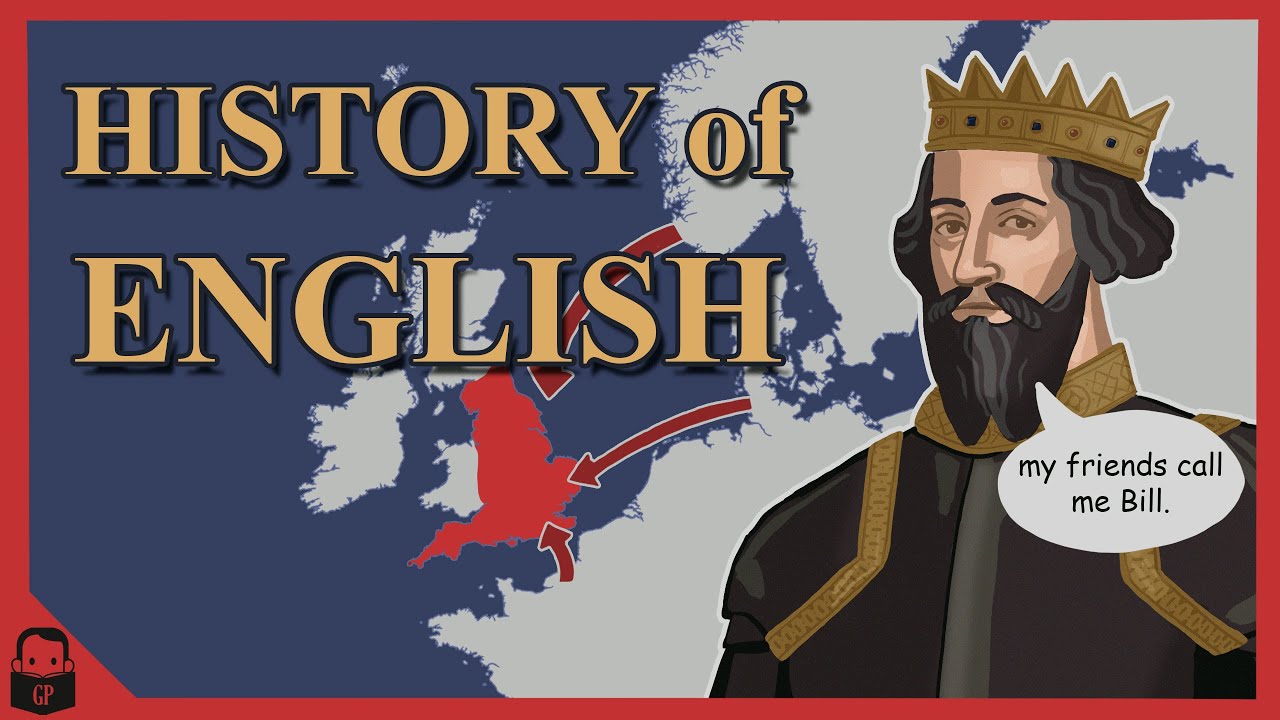Why don't "tough" and "dough" rhyme? - Arika Okrent
Summary
TLDRThe video script delves into the complex history of English spelling, highlighting its evolution from Old English to the influence of Latin, French, and the Great Vowel Shift. It explains how the printing press, without standardization, contributed to the irregularities in spelling, leading to a language filled with inconsistencies that make it challenging for learners. The script also touches on the ongoing debate for spelling reform to make English more intuitive.
Takeaways
- 📚 Spelling reformers have been advocating for changes in English spelling for centuries to make it more intuitive.
- 🌐 English spelling is filled with irregularities, as illustrated by the example of 'g-h-o-t-i' which could be mistakenly thought to spell 'fish'.
- 🏛 English originated from the old Germanic tribes that invaded the British Isles over 1,500 years ago, evolving into Old English.
- ✍️ The Latin alphabet was used by Roman missionaries around 600 CE to write Old English, with some Germanic runes added for unique sounds.
- 🏰 The Norman invasion of 1066 brought French into England, influencing the English language but not replacing the dominant spoken English.
- 🎓 By the mid-1400s, English was written again, but it was unstandardized and influenced by French, Latin, and spoken English.
- 📖 The arrival of the printing press in 1476 in England led to a lack of standardization in spelling due to the diverse linguistic backgrounds of the printers.
- 📝 The word 'dough' exemplifies the evolution of spelling and pronunciation, with its original guttural sound represented by 'g-h' and later pronounced as 'f'.
- 🔍 Silent letters in words like 'knife', 'gnat', and 'wrong' are remnants of past pronunciations that have changed over time.
- 🎶 The Great Vowel Shift between the 14th and 18th centuries significantly altered the pronunciation of many English vowels, affecting spelling.
- 🔠 The 'o-u' spelling in words like 'tough', 'through', and 'dough' is a result of the haphazard application of French influence during the vowel shift.
- 🌍 The complexity of English spelling makes it challenging for non-native speakers, highlighting the impact of history on the language's development.
Q & A
What event took place in June 2010 that involved young contestants wrestling with complex words?
-In June 2010, the Scripps National Spelling Bee took place, where contestants aged between 8 and 15 wrestled with complex words such as 'brachydactylous' and 'leguleian'.
Why do some people protest against the complexity of English spelling conventions?
-People protest against the complexity of English spelling conventions because they believe that the irregularities and inconsistencies in spelling make it difficult to learn and use the language intuitively.
What is an example given in the script to illustrate the irregularity of English spelling?
-The script provides the example of combining the 'g-h' sound from 'enough,' the 'o' sound from 'women,' and the 't-i' sound from 'action,' to argue that 'g-h-o-t-i' could be mistakenly spelled as 'fish.'
How did the English language evolve from its early beginnings?
-English evolved from the languages of old Germanic tribes that invaded the British Isles over 1,500 years ago. Their languages coalesced into Old English, which was later influenced by Latin, French, and the continued use of English itself.
What significant event in 1066 influenced the English language?
-The Norman invasion of 1066 had a significant influence on the English language, as French speakers conquered England and French became the language of authority and high society, influencing the English language with French words.
How did the introduction of the printing press in 1476 affect English spelling?
-The introduction of the printing press in 1476 led to the solidification of various spellings without standardization. Printers, possibly Flemish speakers, reproduced manuscripts with inconsistent spellings, leading to a multitude of spellings for the same word.
What is the 'Great Vowel Shift' mentioned in the script, and how did it affect English pronunciation?
-The 'Great Vowel Shift' refers to a significant change in the pronunciation of many English vowels between the 14th and 18th centuries. It altered the way certain vowels were pronounced, leading to shifts in word pronunciation and the adoption of new spellings that reflected these changes.
Why do some words in English have silent letters, such as the 'g' in 'dough'?
-Silent letters in English words, such as the 'g' in 'dough,' are vestiges of past pronunciations. The original guttural Germanic sound that the Latin alphabet didn't cover was represented with 'g-h,' which eventually changed or was dropped in pronunciation over time.
How did the French influence affect the spelling of words like 'tough,' 'through,' and 'dough'?
-The French influence affected the spelling of words like 'tough,' 'through,' and 'dough' by adopting the 'o-u' spelling pattern. This was a haphazard application of French influence, resulting in similar spellings with distinct vowel sounds.
What challenges does the complex history of English spelling pose for non-native speakers?
-The complex history of English spelling poses challenges for non-native speakers because it requires them to learn irregular spellings and pronunciations that do not always follow intuitive patterns, making the language difficult to master.
Why do spelling reformers advocate for changes in English spelling?
-Spelling reformers advocate for changes in English spelling to make it more intuitive and regular, reducing the complexity and irregularities that make it challenging for both native and non-native speakers to learn and use the language.
Outlines

This section is available to paid users only. Please upgrade to access this part.
Upgrade NowMindmap

This section is available to paid users only. Please upgrade to access this part.
Upgrade NowKeywords

This section is available to paid users only. Please upgrade to access this part.
Upgrade NowHighlights

This section is available to paid users only. Please upgrade to access this part.
Upgrade NowTranscripts

This section is available to paid users only. Please upgrade to access this part.
Upgrade NowBrowse More Related Video
5.0 / 5 (0 votes)





